HORAE, use of Rouen, Latin and French: Ces presentes heures a lusaige de Rouan . Paris: Simon Vostre [almanac for 1508-28].
HORAE, use of Rouen, Latin and French: Ces presentes heures a lusaige de Rouan . Paris: Simon Vostre [almanac for 1508-28]. 4° (252 x 171mm). Collation: a-b 8 c 4 d-i 8 k 4 ä-ë 4. 88 leaves. 32 lines. Text type: 98 bâtarde. 14 full-page metalcuts, 13 large cuts within architectural frame, 34 small cuts, Vostre device on title, multi-part historiated and ornamental criblé border in the style of the Apokalypsenrose workshop to all pages except those with full-page cuts. Initials and paragraph marks alternating in red and blue, yellow capital strokes. French 16th-century calf tooled in gilt and blind, sides with intersecting squares and fleurons at centre, panel with fleurons at corners, gilt edges (lightly rubbed, split at front hinge, discreet repairs at extremities, new endpapers); early 20th-century brown morocco pull-off case, spine lettered in gilt. Provenance : unidentified armorial stamp on title. Vostre's Grandes Heures , containing an early use of the complete quarto series of cuts. "The remarkable cuts ... are still further departures from the old canon of book illustration. Introduced here are all forms of shading ... giving an appearance of solidity to the pictures which was never before attained" (Davies I, 280). Considered among the most beautiful and unified series of cuts illustrating Books of Hours, Vostre's large cuts have been attributed to Jean Perreal and most recently to the Pichore workshop. A striking feature of the Grandes Heures is the use of two illustrations for the same scene, i.e. each section opens with both a full-page 4to cut and a large criblé cut from the Pigouchet-Vostre set 3. These are supplemented with numerous smaller cuts and border cycles of the Dance of Death, Triumphs of Caesar, Apocalypse, and Signs of the Last Judgement. Three of the 4to cuts were first used by Vostre in 1504 and the full series of 14 in 1508. Cf. Tenschert Horae 95-96 (use of Rome). The near contemporary binding resembles one on a Fairfax Murray Horae (no. 693). Bohatta Heures 1343; Lacombe 181-84; Brunet Heures 76.
HORAE, use of Rouen, Latin and French: Ces presentes heures a lusaige de Rouan . Paris: Simon Vostre [almanac for 1508-28].
HORAE, use of Rouen, Latin and French: Ces presentes heures a lusaige de Rouan . Paris: Simon Vostre [almanac for 1508-28]. 4° (252 x 171mm). Collation: a-b 8 c 4 d-i 8 k 4 ä-ë 4. 88 leaves. 32 lines. Text type: 98 bâtarde. 14 full-page metalcuts, 13 large cuts within architectural frame, 34 small cuts, Vostre device on title, multi-part historiated and ornamental criblé border in the style of the Apokalypsenrose workshop to all pages except those with full-page cuts. Initials and paragraph marks alternating in red and blue, yellow capital strokes. French 16th-century calf tooled in gilt and blind, sides with intersecting squares and fleurons at centre, panel with fleurons at corners, gilt edges (lightly rubbed, split at front hinge, discreet repairs at extremities, new endpapers); early 20th-century brown morocco pull-off case, spine lettered in gilt. Provenance : unidentified armorial stamp on title. Vostre's Grandes Heures , containing an early use of the complete quarto series of cuts. "The remarkable cuts ... are still further departures from the old canon of book illustration. Introduced here are all forms of shading ... giving an appearance of solidity to the pictures which was never before attained" (Davies I, 280). Considered among the most beautiful and unified series of cuts illustrating Books of Hours, Vostre's large cuts have been attributed to Jean Perreal and most recently to the Pichore workshop. A striking feature of the Grandes Heures is the use of two illustrations for the same scene, i.e. each section opens with both a full-page 4to cut and a large criblé cut from the Pigouchet-Vostre set 3. These are supplemented with numerous smaller cuts and border cycles of the Dance of Death, Triumphs of Caesar, Apocalypse, and Signs of the Last Judgement. Three of the 4to cuts were first used by Vostre in 1504 and the full series of 14 in 1508. Cf. Tenschert Horae 95-96 (use of Rome). The near contemporary binding resembles one on a Fairfax Murray Horae (no. 693). Bohatta Heures 1343; Lacombe 181-84; Brunet Heures 76.


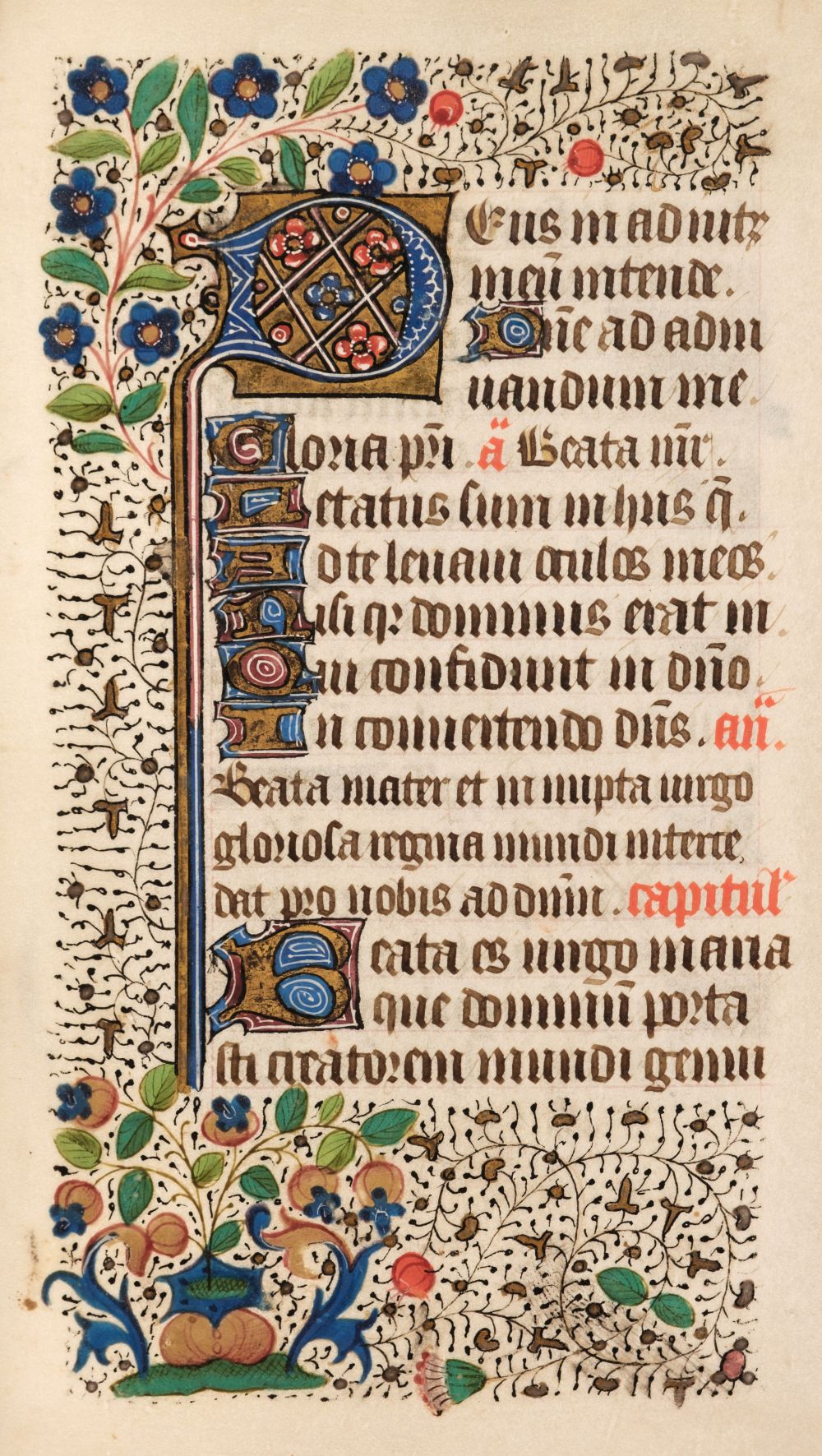
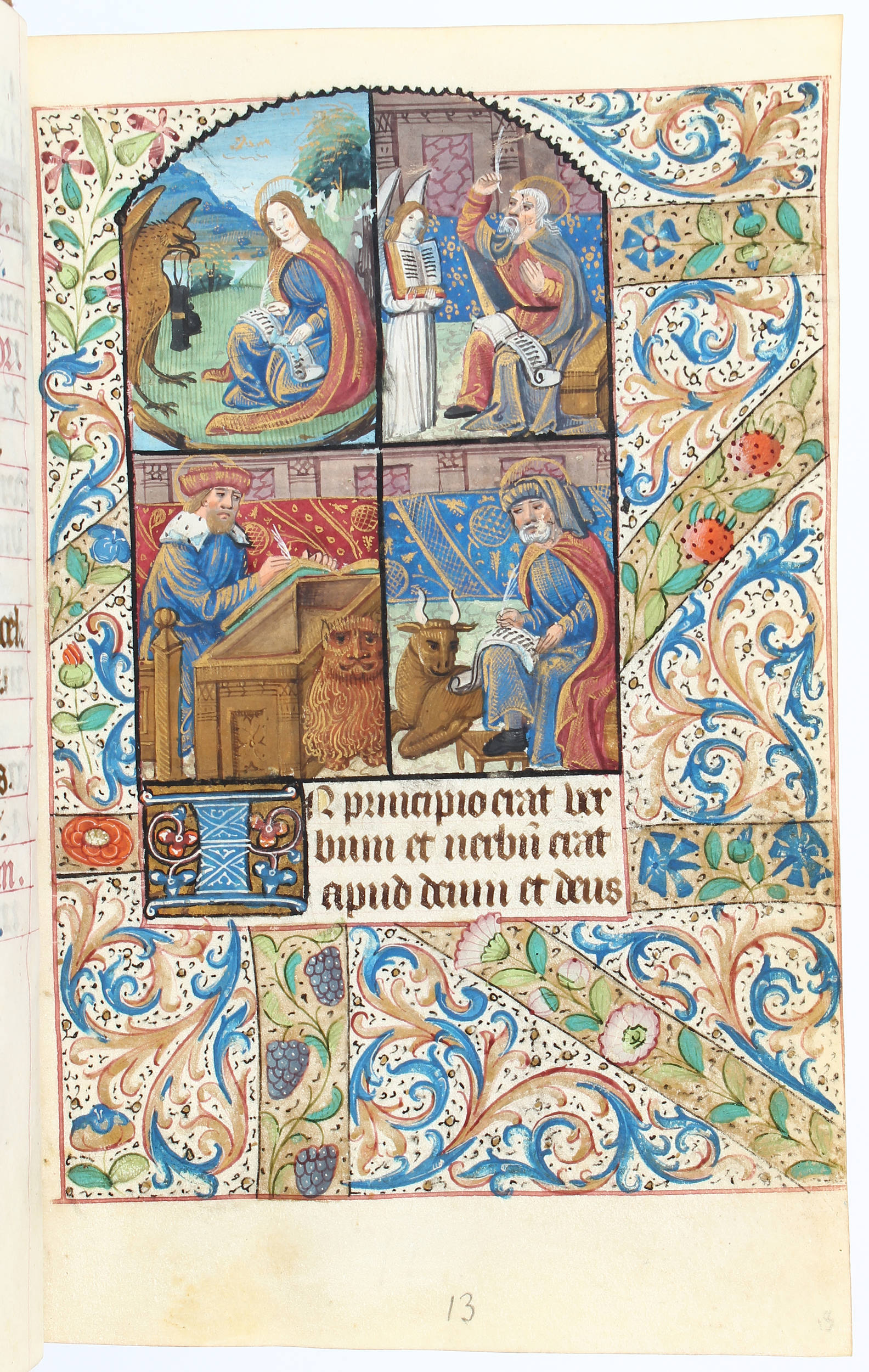

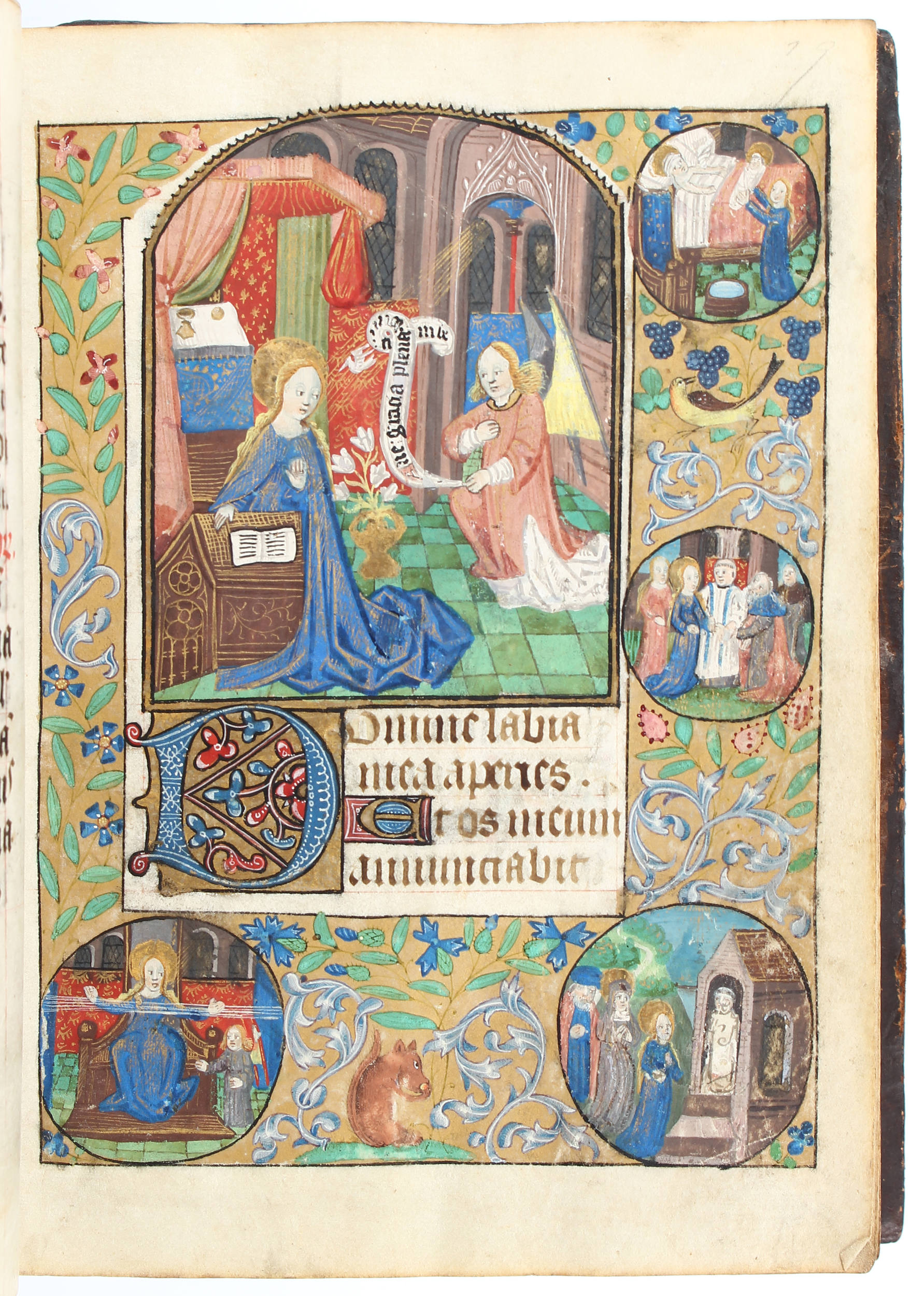
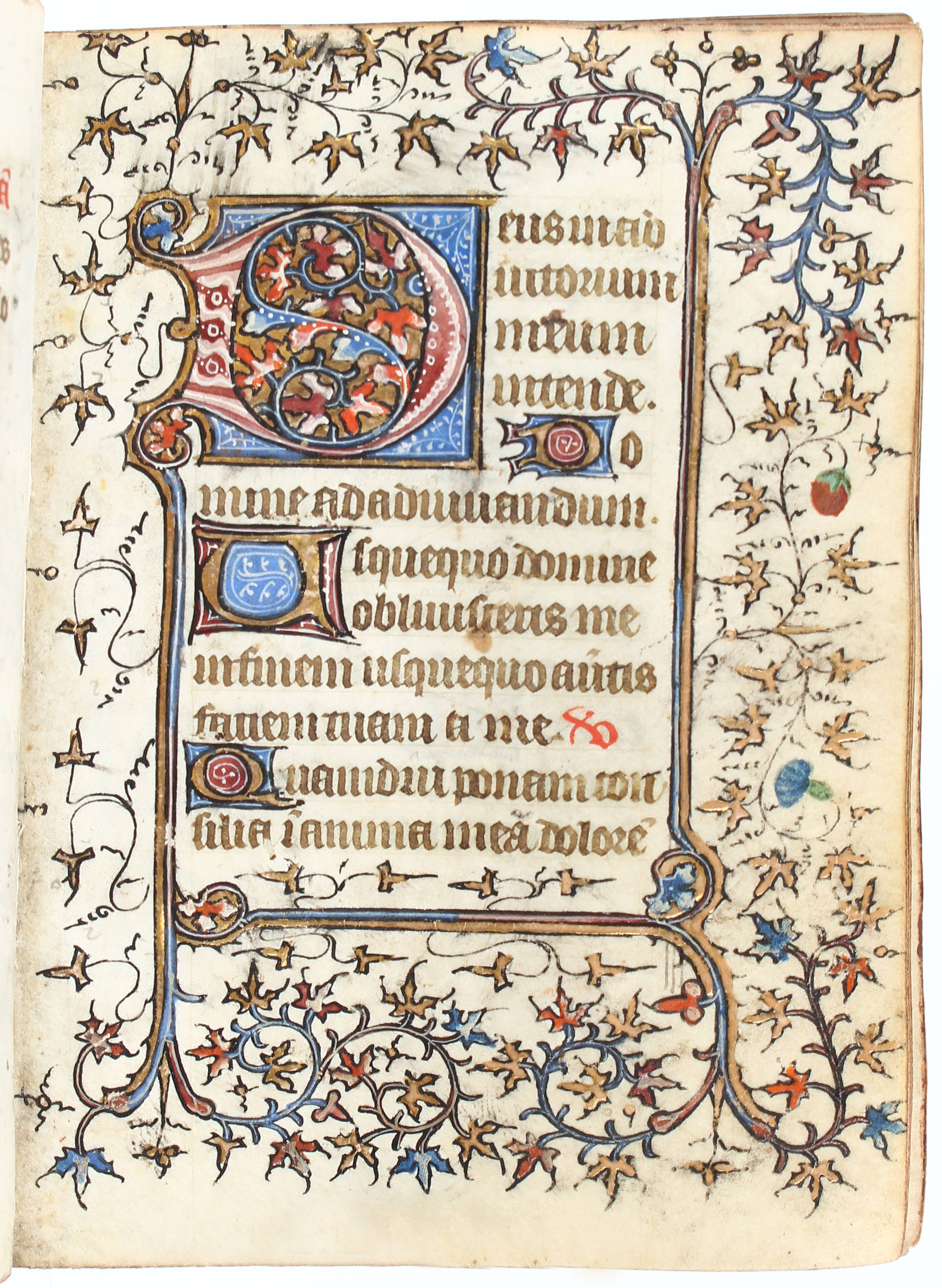
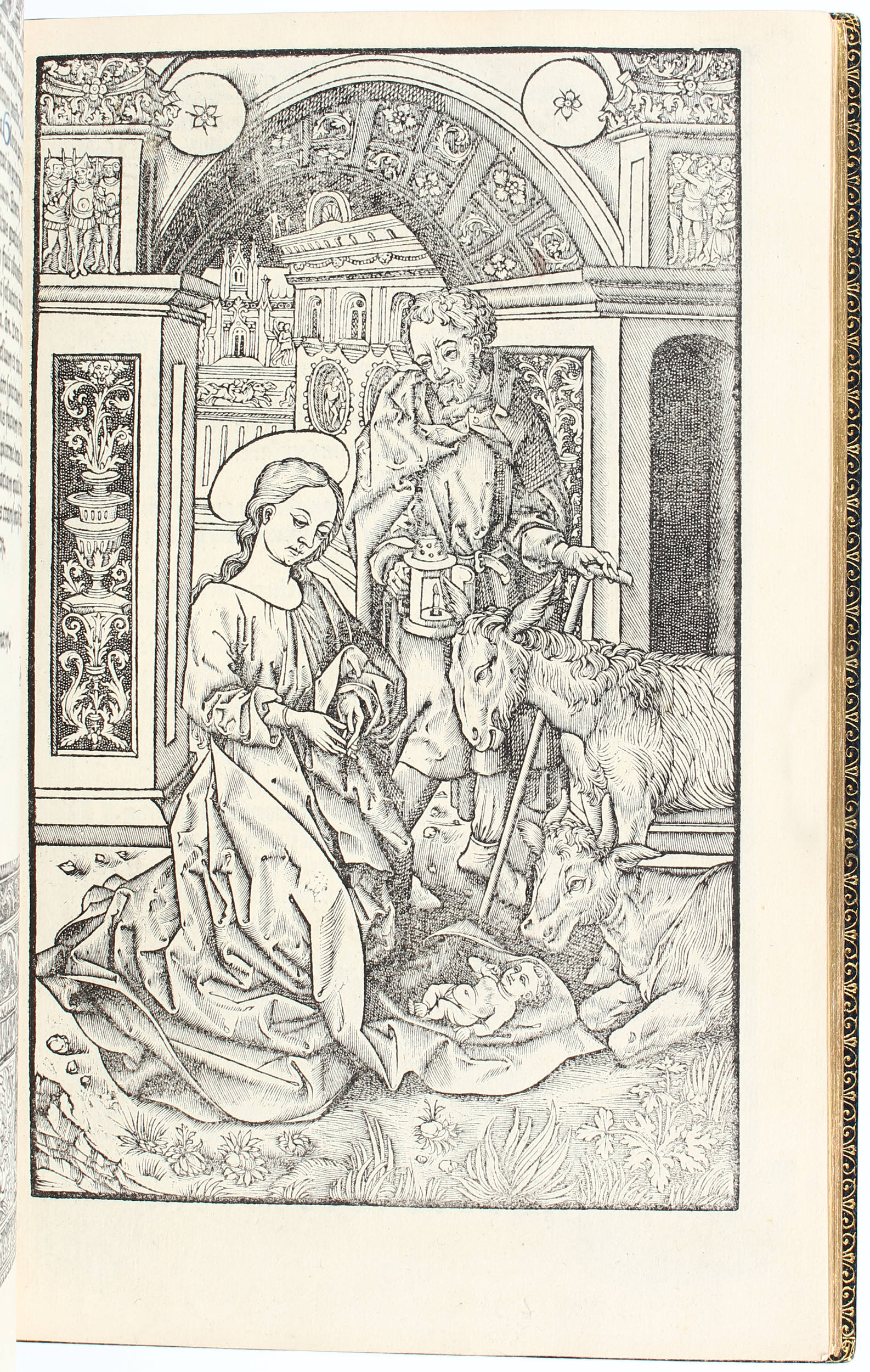

.jpg)


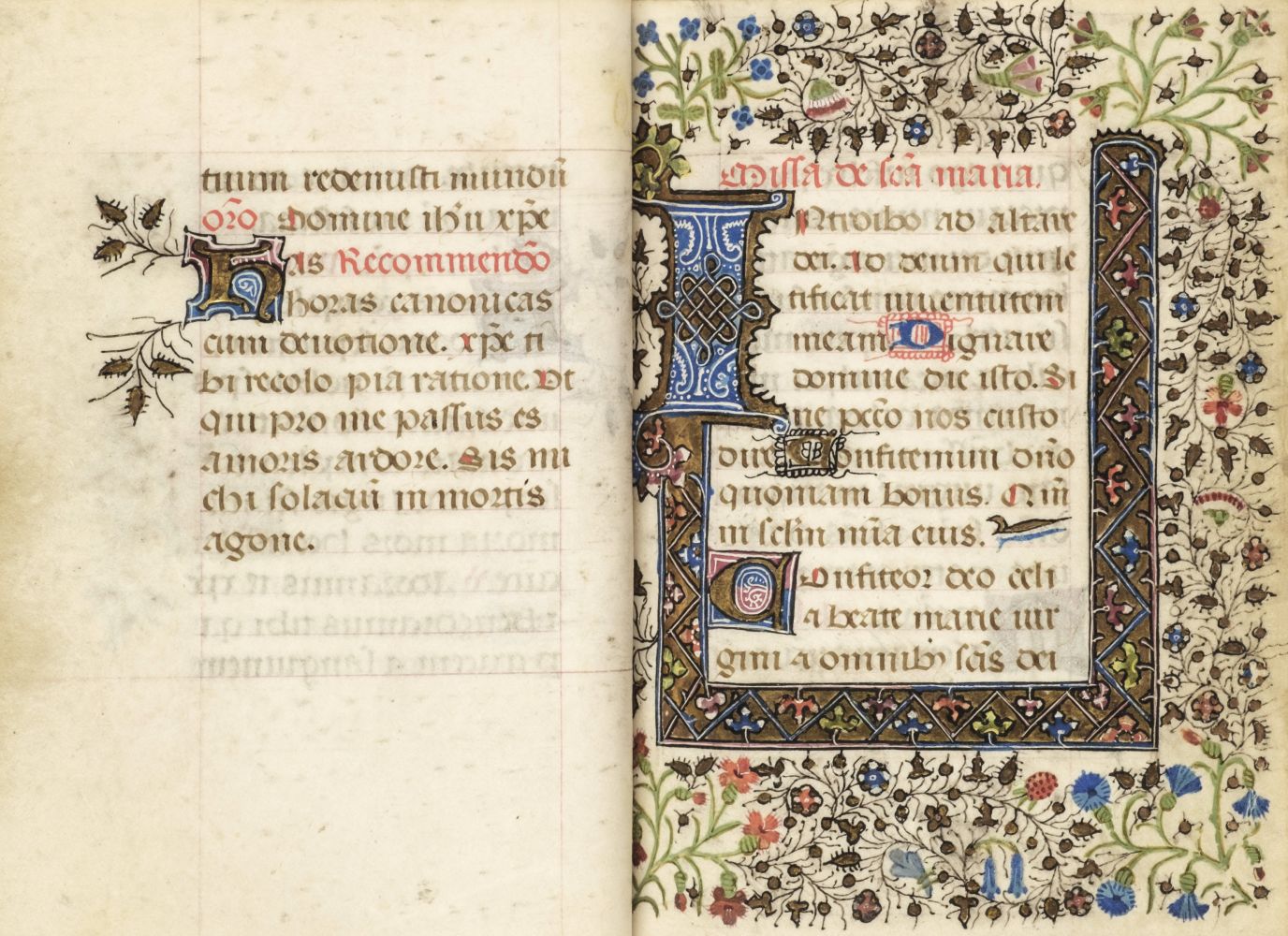
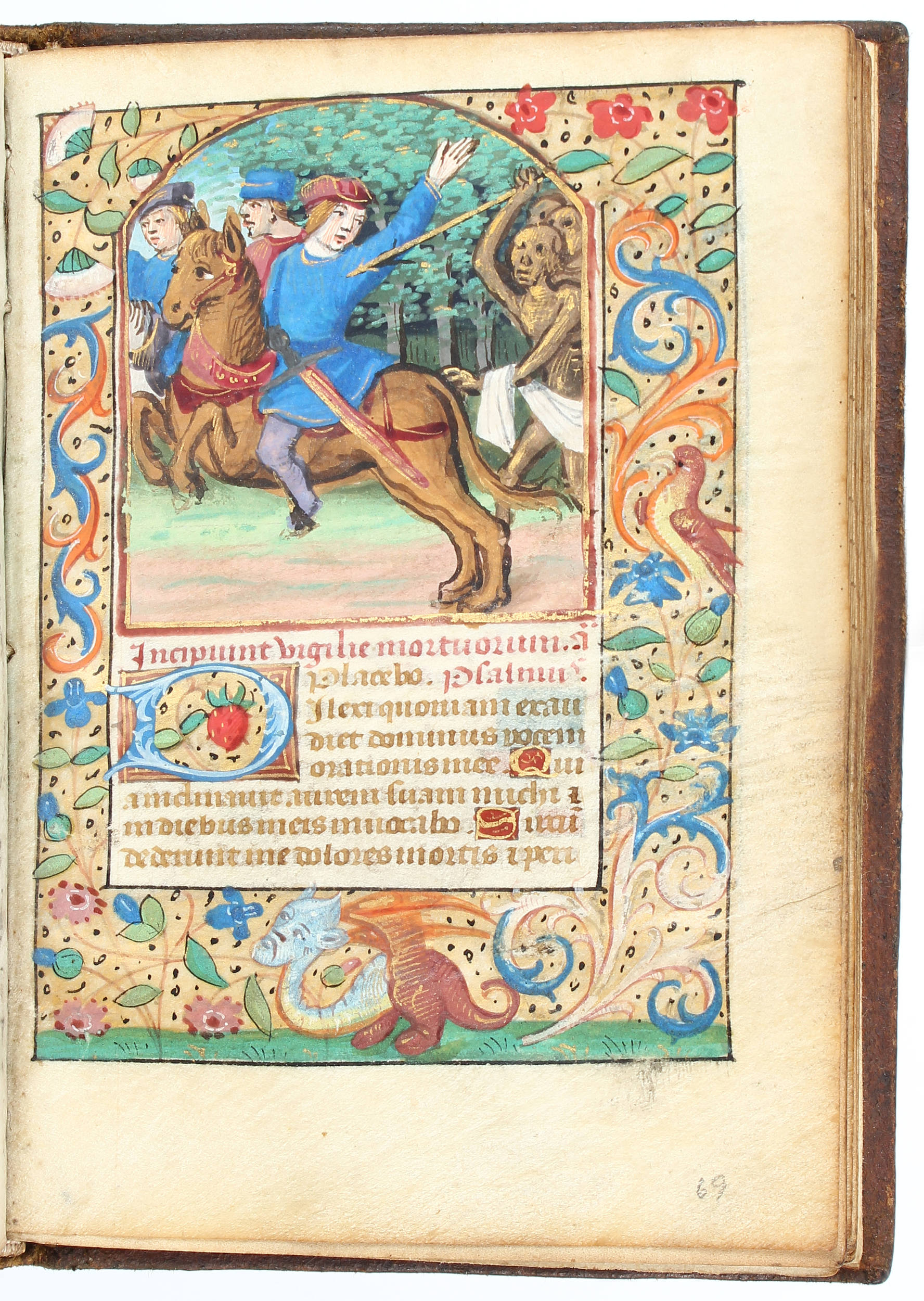
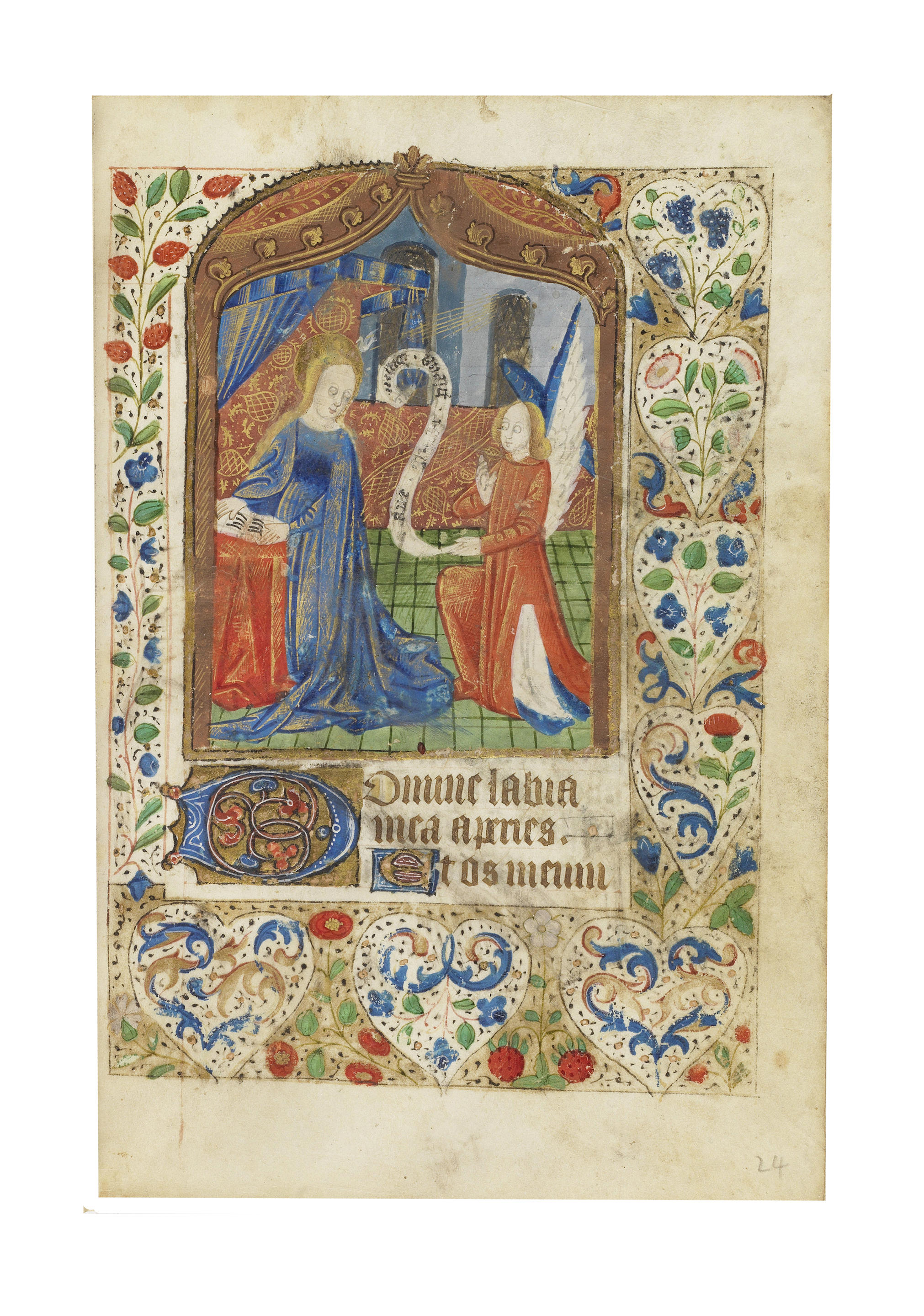
Testen Sie LotSearch und seine Premium-Features 7 Tage - ohne Kosten!
Lassen Sie sich automatisch über neue Objekte in kommenden Auktionen benachrichtigen.
Suchauftrag anlegen